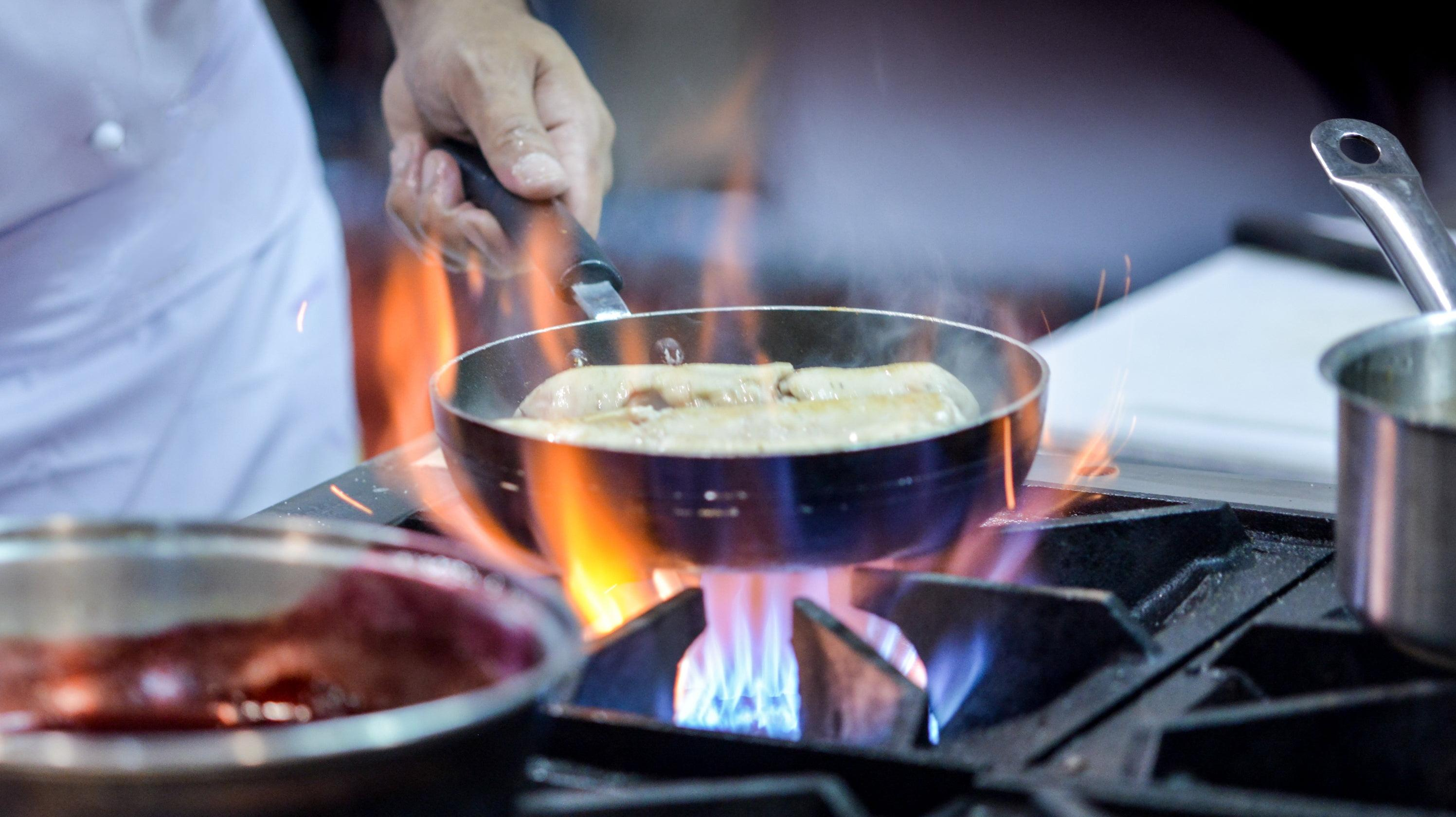How The Gas Stove Ban Will Actually Affect You
The transition to electric stoves is the future of both homes and restaurants.
Last week, the Los Angeles Times ran an article with the provocative headline, "The end of Korean BBQ in L.A.? What the gas stove ban means for your fave restaurants." That sounds bad. But Californians don't necessarily have to worry about their way of life changing thanks to new regulations on natural gas. Here's why.
What is the gas stove ban?
Back in 2019, the nation's first all-out ban on gas stoves in new constructions took effect in Berkeley, California. Since then, more than 50 cities and counties throughout California have followed suit. Other cities and states like Boston, Milwaukie, Oregon, and Washington state are either considering similar policies or have adopted similar regulations.
Specifically in Los Angeles, the ordinance requires that all new construction (both residential and commercial) be built to achieve zero-carbon emissions by 2023. This means no more gas stoves. However, the key words here are "new construction," as this shift to electric appliances does not ban gas stoves retroactively. It only applies to construction beginning in 2020 onward; any gas stoves that already exist in LA residences and businesses are allowed to continue operating as usual.
The ban is taking aim at future infrastructure in the hopes of reducing carbon emissions. By phasing out gas hookups in residential and commercial buildings, the city of Los Angeles could majorly reduce its carbon footprint in the years ahead.
"The reality is that all of the low hanging fruit of reducing emissions is gone, and buildings really make up an enormous source of our greenhouse gas emissions citywide, more than the manufacturing sector and more than cars here in L.A.," Los Angeles Councilwoman Nithya Raman told ABC7 last month. "I think we really have to focus on buildings and that's exactly what this motion intends to do."
According to the motion that called for the ordinance, buildings in Los Angeles account for 43% of greenhouse gas emissions; by comparison, the national level is 30%, and in the state of California as a whole, buildings account for 25% of all emissions.
How the gas stove ban affects restaurants
So, about that L.A. Times headline. At the moment, the ban does not technically affect the ability of any Los Angeles restaurant you already know and love to operate its existing gas stoves, whether it's a Korean BBQ joint or anything else.
Adam Conover, former host of Adam Ruins Everything, aptly pointed out on Twitter that many Korean BBQ places use propane tanks rather than gas hookups for their stoves, an energy source that would not be impacted by the ban. Beyond that, though, no current restaurants are being asked to change how they operate—it would only affect those that move into new commercial developments in the future.
"Literally, there is not a single existing restaurant in Los Angeles that will be affected," tweeted Conover.
The transition to electric-based cooking is a move toward the good of the future, and the ban on gas ranges does not punish homes and businesses that already use them. While it's understandable that certain cuisines need an open flame to achieve their signature flavors, it might not be impossible to replicate these results using new methods.
Bryant Ng, a restaurant owner in Santa Monica, California, told the Los Angeles Times that transitioning to electric cooking methods would be difficult for an operation such as his, but not impossible.
"For the most part, I do believe most cooking can be done with electric or induction cooking equipment, but it would require a lot of re-training to get there, which isn't necessarily a bad thing and better for the environment," wrote Ng in an email to the Times.
If that transition is going to be required of restaurants in the future, Ng points out that it will require monetary resources to enact (electricity can be more expensive than gas bills), and not all restaurants have those resources, particularly ones owned by people of color. Fortunately, Conover notes on Twitter that, in its current form, the ban requires no such thing.
Of course, it's going to take some time and definitely some creativity to alleviate everyone's concerns, but the new ordinance doesn't mean it all has to get figured out today. What it does mean is that we stand a chance to stop actively making the climate situation worse each and every day while we try to dig ourselves out of this manmade problem. And as for the home appliances, well, most home chefs don't cook the kind of elaborate meals that might demonstrate the limitations of an electric range anyway.
